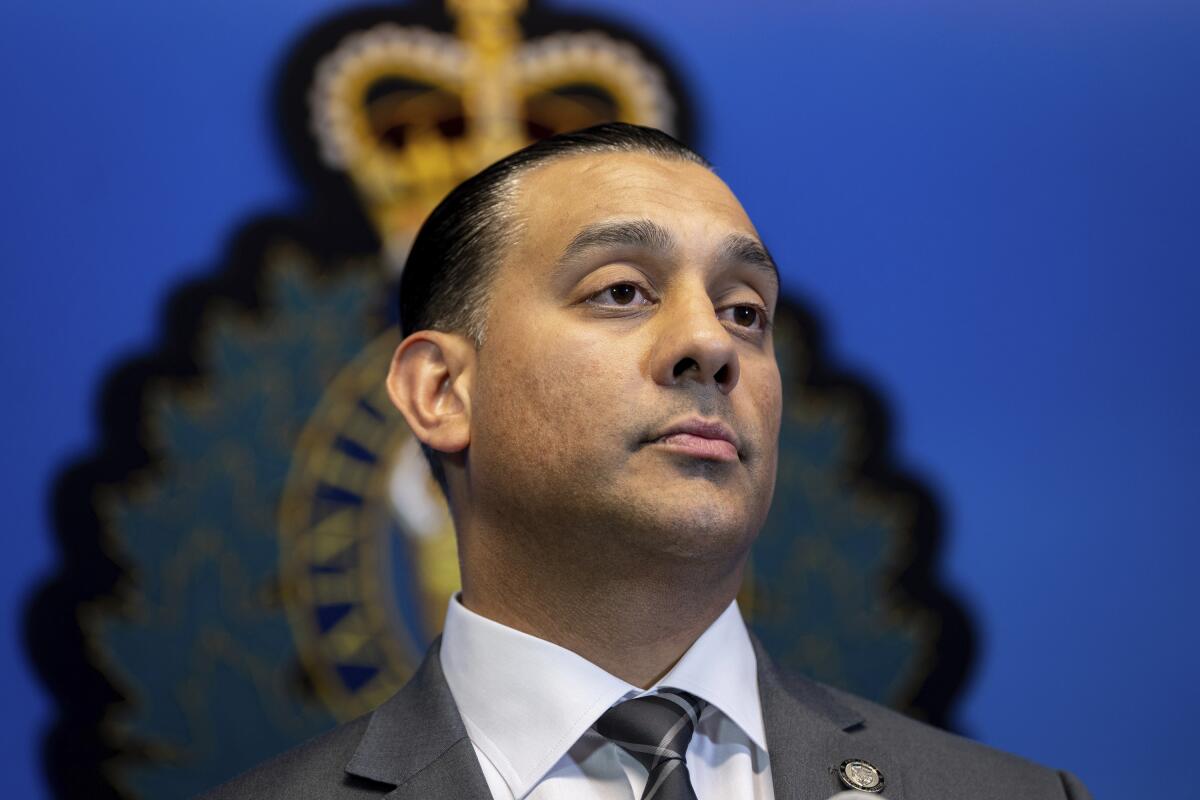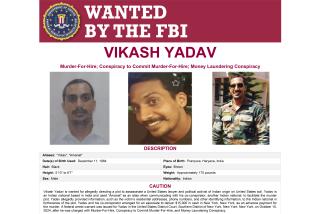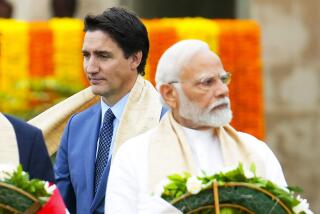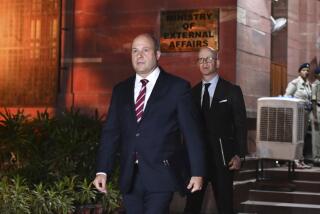Indian nationals charged with killing Canadian Sikh separatist make court appearance

- Share via
SURREY, British Columbia — Two of the three men charged in the slaying of Canadian Sikh separatist leader Singh Nijjar in June made a brief first court appearance on Tuesday morning.
The killing of the prominent activist became the center of a diplomatic spat after Canadian Prime Minister Justin Trudeau said in September that there were “credible allegations” of Indian involvement.
Canadian police said Friday they arrested the three Indian nationals in Edmonton, Alberta, for shooting and killing the 45-year-old in his pickup truck after he left the Sikh temple over which he presided in the city of Surrey.
Kamalpreet Singh, 22, Karan Brar, 22, and Karanpreet Singh, 28, have been charged with first-degree murder and conspiracy to commit murder.
On Tuesday, Brar and Karanpreet Singh appeared in court via a video link and agreed to a trial in English. They were ordered to appear in British Columbia Provincial Court again on May 21.
Canadian police arrest three in the slaying of a Sikh separatist leader and are investigating possible ties between the suspects and India’s government.
Kamalpreet Singh didn’t attend the court session as he waited to speak to a lawyer.
The small provincial courtroom was filled with spectators. Others crowded into an overflow room to watch the proceedings via video.
Richard Fowler, the defense lawyer representing Brar, said the case will eventually be moved from the British Columbia Provincial Court to the Supreme Court and combined into one case.
About 100 people gathered outside the courthouse waving yellow flags and holding photos of Indian government officials whom they accuse of being involved in Nijjar’s killing.
Canadian police say the three suspects had been living in Canada as non-permanent residents.
A Sikh temple in Stockton is a key part of a movement to form a breakaway republic thousands of miles away in India.
Nijjar — an Indian-born citizen of Canada — was a plumber and a leader in what remains of a once-strong movement to create an independent Sikh homeland in India, known as Khalistan, for which he had heavily campaigned. He organized unofficial referendums around the world about Punjabi independence. The separatist leader was called a human rights activist by Sikh organizations and a criminal by India’s government.
India had accused Nijjar of links to terrorism, but angrily denied involvement in the slaying. In response to the allegations, India told Canada last year to remove 41 of its 62 diplomats in the country. Tensions remain but have somewhat eased since.
A bloody decadelong Sikh insurgency shook north India in the 1970s and 1980s until it was crushed in a government crackdown in which thousands of people were killed, including prominent Sikh leaders.
The Khalistan movement has lost much of its political power but still has supporters in the Indian state of Punjab, as well as in the sizable overseas Sikh diaspora. While the active insurgency ended years ago, the Indian government has repeatedly warned that Sikh separatists were trying to make a comeback.
Morris writes for the Associated Press.
More to Read
Sign up for Essential California
The most important California stories and recommendations in your inbox every morning.
You may occasionally receive promotional content from the Los Angeles Times.












